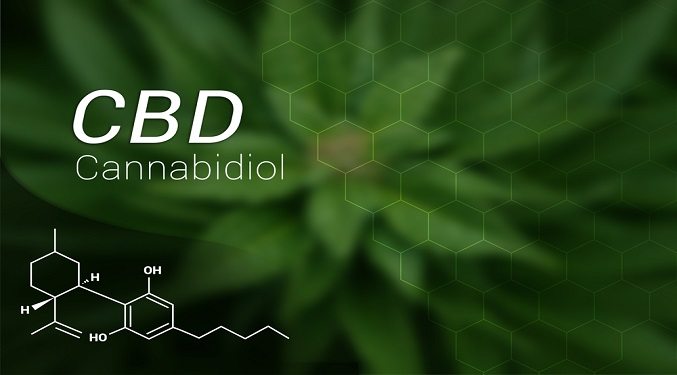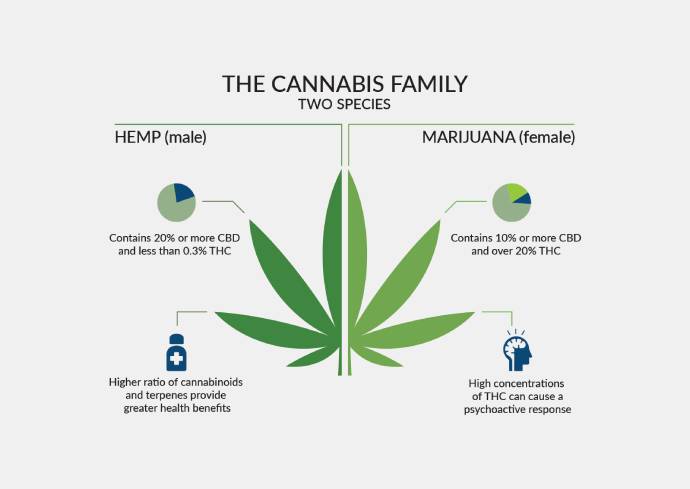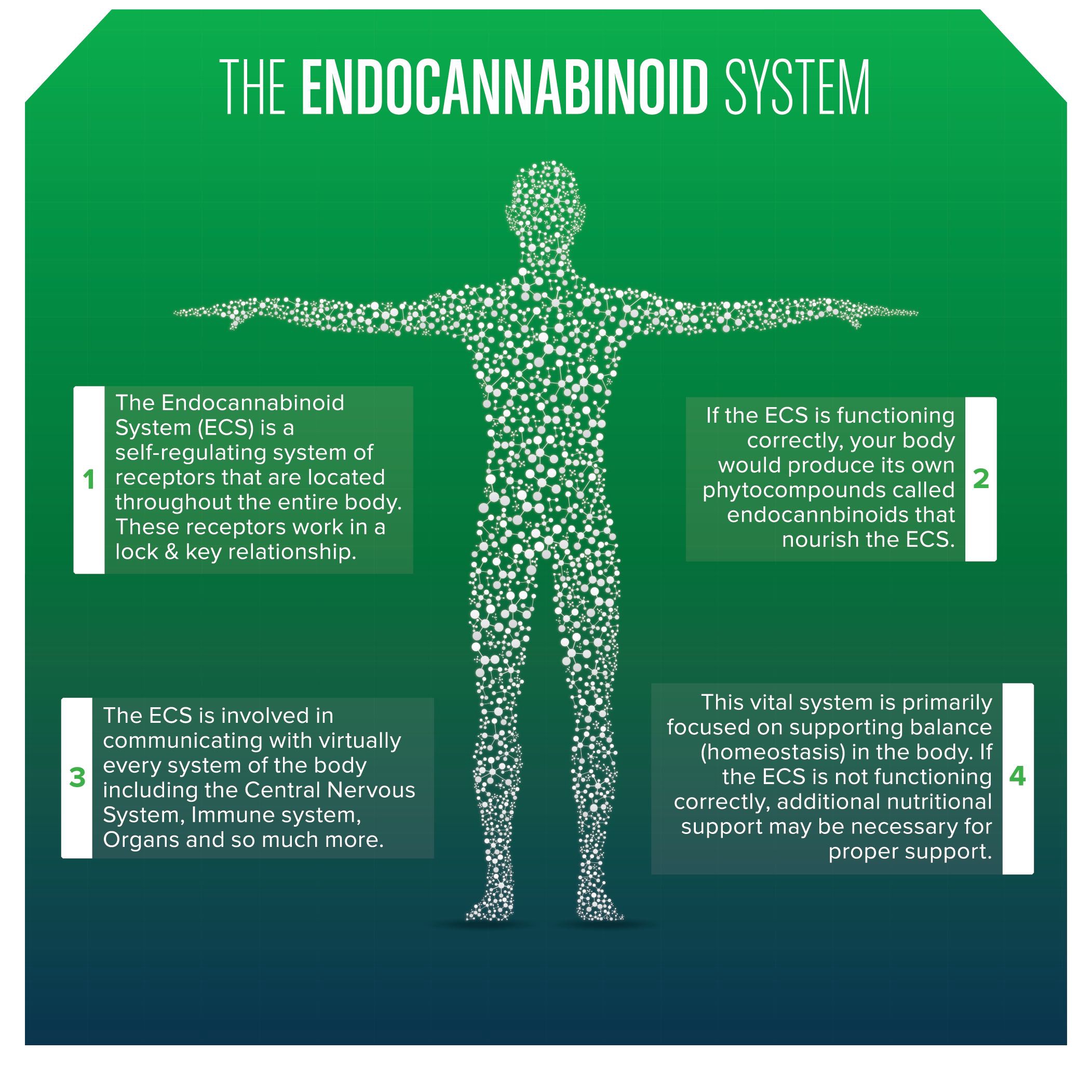WHAT IS CANNABIDIOL (CBD)

CBD stands for cannabidiol. Cannabidiol (CBD) is one of at least 113 active cannabinoids identified in cannabis. The only two cannabinoids are CBD and THC. The difference between CBD & THC is CBD protects the body’s own endogenous cannabinoid, named “anandamide”, and does not directly bind with the receptors. THC binds directly with the CB1 receptors in the human brain and also the CB2 receptors located in every other organ in the human body. Anandamide is known as the human THC because THC hijacks one of the traditional binding locations of anandamide.
Cannabidiol or CBD, is a promising phytocannabinoid found in agricultural hemp. CBD is non-psychotoxic (i.e. it does not result in feelings of euphoria) and has a remarkable safety profile.
Benefits of CBD (CANNABIDIOL)
When CBD is absorbed by the body it flows through your bloodstream and ends up in the brain where it binds to neurotransmitters and neuroreceptors called endocannabinoids. Endocannabinoids and metabolizing enzymes are a part of our Endocannabinoid System (ECS) that regulates factors such as pain, anxiety, sleep and more. When CBD reaches these receptors, it can tell your brain cells to “relax, eat, sleep, forget and protect.” Helping relieve many symptoms.
Cannabidiol (CBD) may help with the following!
- Anxiety relief and Social Anxiety Disorder (SAD)
- Chronic Pain Relief
- Relieve Cancer Pains & Cancer-Related Symptoms
- Reduce Acne & Dry-Skin Syndrome: Natural Analgesic
- Neuroprotective Properties
- Anti-seizure
- Seizures & Epilepsy Treatment
- Help Reduce Fear Reaction or Effects
- Reduce Depression & Increase Mood
- Reduce Stress
- Help Sleep Insomnia
- Reduce Symptoms of PTSD
- Help Fibromyalgia
- Relief From Nausea and Vomiting
- Reduce Inflammation (Chronic Inflammatory)
- Help Nerve Pain
- Help Multiple Sclerosis
- Help Arthritis (Rheumatoid)
- Help Migraines and Chronic Headaches
- Help Decrease Cigarette Smoking Habits
- Help Drug (Opioid) Withdrawal & Addiction
- Digestive Aid
- Muscle Relaxer and May Speed Up Muscle Recovery
- Benefit Heart Health
- Reduce Risk of Diabetes and Obesity
- Immunomodulatory Effects
- Potential in treatment of HIV-1 infection
- CBD is an effective treatment for heroin addiction
How is cannabidiol different from marijuana?

Cannabidiol is the second most prevalent of the active ingredients of cannabis (marijuana). While CBD is an essential component of medical marijuana, it is derived directly from the hemp plant, which is a cousin of the marijuana plant. CBD is a component of marijuana (one of hundreds), by itself it will not cause a “high". To date, there is no evidence of public health related problems associated with the use of pure CBD. According to a report from the World Health Organization, CBD exhibits no effects indicative of any abuse or risk for dependence potential.
Is cannabidiol legal?
CBD is readily obtainable in most parts of the United States. Due to legislation passing the 2018 Farm Bill, hemp and its derivative products are legal in the U.S. This means that on a federal level hemp CBD products are currently legal as well. Hemp legalization came to pass due to a provision added to the 2018 Farm Bill that which fully legalizes the hemp industry in the U.S. The provision, is officially known as the Hemp Farming Act of 2018, and it removed hemp completely from the Controlled Substances Act (CSA) and allows it to be sold as an agricultural commodity and used commercially in the manufacturing of products. Which means all hemp products are now federally legal in the U.S., including those containing CBD.
NOTE: This change only affected hemp. Marijuana is still illegal on a federal level, including CBD products made from marijuana.
The evidence for cannabidiol health benefits
CBD has been used and tested for a wide variety of health issues, but the strongest scientific evidence is for its effectiveness in treating some of the cruelest childhood epilepsy syndromes, which typically don’t respond to anti-seizure medications. Numerous studies showed CBD was able to reduce the number of seizures, and in some cases it was able to stop them altogether. Recently the FDA approved the first ever cannabis-derived medicine for these conditions, Epidiolex, which contains CBD. Epidiolex (cannabidiol) is a prescription medicine used to treat seizures in people with Lennox-Gastaut syndrome or Dravet syndrome. Epidiolex is for use in adults and children who are at least 2 years old. Epidiolex is controlled in Schedule V of the Controlled Substances Act. Videos of the effects of CBD on children and their seizures are quite striking.
CBD is commonly used to address anxiety, and for patients who suffer through the misery of insomnia, studies suggest that CBD may help with both falling asleep and staying asleep. CBD may also offer an option for treating different types of chronic pain.
How Does CBD Work?

CBD and THC interact with our bodies in a variety of ways. One of the main ways they impact us is by augmenting and mimicking the effects of the compounds in our bodies called “endogenous cannabinoids” - which is the similarity to the compounds found in the cannabis plant. These “endocannabinoids” are part of a regulatory system called the “endocannabinoid system”.
The endocannabinoid system when discovered showed significantly advanced and understanding of health and disease. It has major implications for nearly every area of medical science and helps to explain how and why CBD and THC are such versatile compounds – and why cannabis is such a widely consumed mood-altering plant.
Is cannabidiol safe & Should You Consider Using CBD?
Important: Even though CBD has a good safety profile, you should check with your doctor before trying it if you are taking medication. CBD can be used effectively and safely. Though it's often well-tolerated and side effect are rare-generally, CBD can cause Side effects of CBD such as nausea, dry mouth, diarrhea, reduced appetite, fatigue, irritability, weight gain (or weight loss) and sleepiness. CBD can also interact with other medications you're taking, such as blood thinners. CBD can increase the level in your blood of the blood thinner coumadin, and it can raise levels of certain other medications in your blood by the exact same mechanism that grapefruit juice does.
How to Use CBD?
Follow label instructions for dosing, starting low and gradually increasing the dose until you get the desired result. Response to CBD varies with each individual. If you have questions, you can consult a health-care professional who has experience prescribing CBD. More and more integrative medicine practitioners are learning about and prescribing CBD in their practices. CBD is available for oral use in tincture and capsules. There also are lotions, creams and other topicals that are useful for arthritis, migraines and other painful conditions and skin ailments such as acne and psoriasis.
The bottom line on cannabidiol (CBD)
CBD is a natural and wonderfully safe, powerful medicinal tool that thousands upon thousands of people are using on a daily basis. Cannabidiol is not just a drug, but also a saving grace for patients suffering from cancer, depression, chronic pain, schizophrenia, epilepsy, and other medical conditions. CBD is a better alternative to artificial drugs that possess more side effects than benefits.
CBD may be an option for managing anxiety, insomnia, and chronic pain. If you decide to try CBD, talk with your doctor — if for no other reason than to make sure it won’t affect other medications you are taking.
Like any medication, CBD products should be evaluated for efficacy and safety, as well as required to meet FDA quality standards. The FDA is currently evaluating how to ensure products sold online or in stores are safe for consumer use.
FDA approval of the first cannabis-plant based medicine for a distinct set of diseases demonstrated how CBD should be studied to evaluate its safety profile and effectiveness for consumer use, opening the door to further studies of Cannabidiol (CBD).
